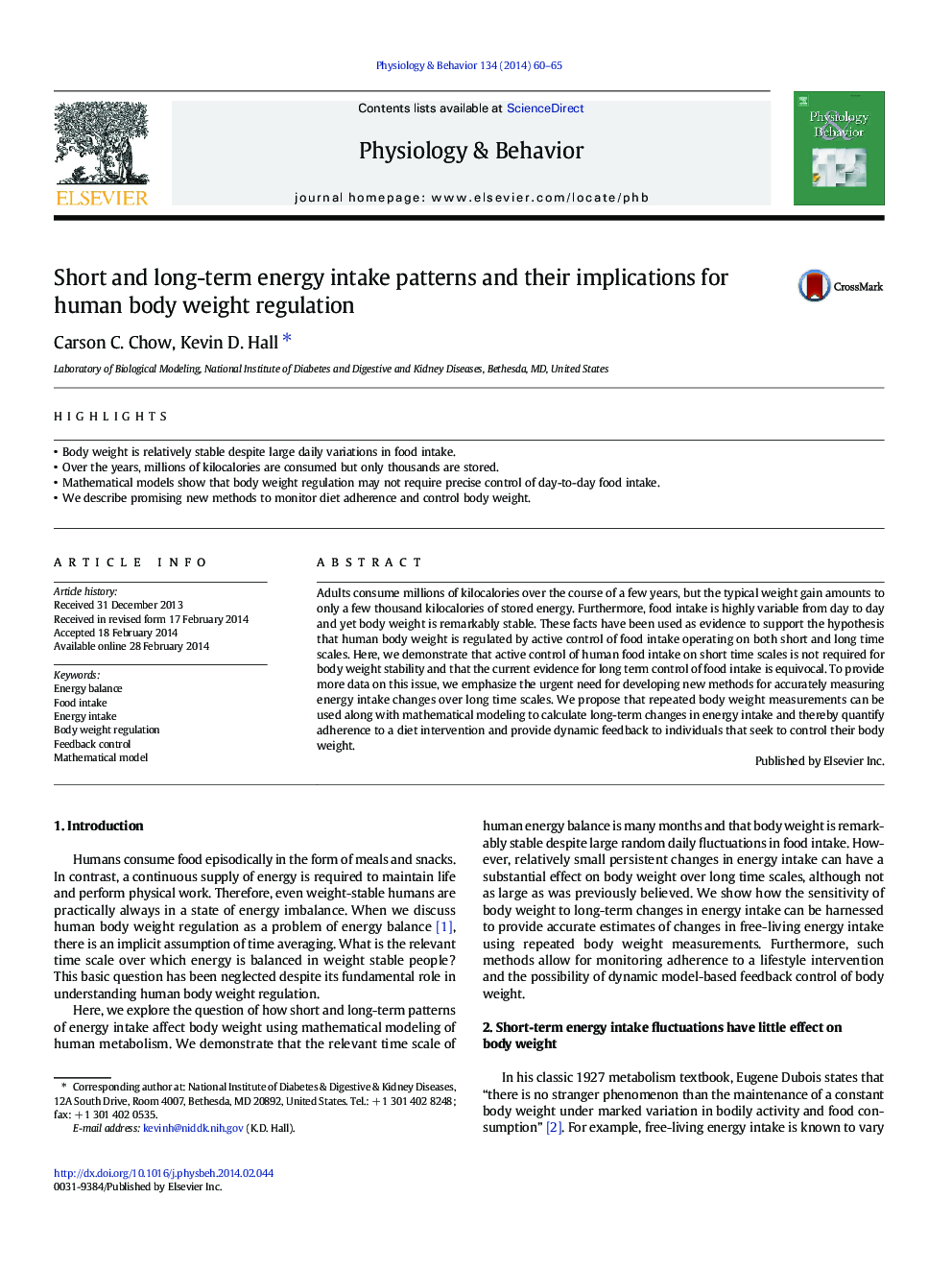| Article ID | Journal | Published Year | Pages | File Type |
|---|---|---|---|---|
| 2844171 | Physiology & Behavior | 2014 | 6 Pages |
•Body weight is relatively stable despite large daily variations in food intake.•Over the years, millions of kilocalories are consumed but only thousands are stored.•Mathematical models show that body weight regulation may not require precise control of day-to-day food intake.•We describe promising new methods to monitor diet adherence and control body weight.
Adults consume millions of kilocalories over the course of a few years, but the typical weight gain amounts to only a few thousand kilocalories of stored energy. Furthermore, food intake is highly variable from day to day and yet body weight is remarkably stable. These facts have been used as evidence to support the hypothesis that human body weight is regulated by active control of food intake operating on both short and long time scales. Here, we demonstrate that active control of human food intake on short time scales is not required for body weight stability and that the current evidence for long term control of food intake is equivocal. To provide more data on this issue, we emphasize the urgent need for developing new methods for accurately measuring energy intake changes over long time scales. We propose that repeated body weight measurements can be used along with mathematical modeling to calculate long-term changes in energy intake and thereby quantify adherence to a diet intervention and provide dynamic feedback to individuals that seek to control their body weight.
